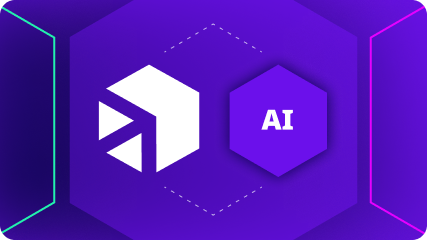Por que os departamentos de TI devem ser um ativo e não uma despesa
maio 15, 2023
Com anfitrião Cait Porte, Diretor de Marketing da Digibee
Neste episódio de “Integração. Redesenhado.”, nosso anfitrião, Diretor de Marketing da Digibee Cait Porte, é acompanhado pelo Diretor de Tecnologia de Campo para a América Latina, Andre Campos, para uma discussão explorando os departamentos de TI. Cait e Andre abordam tópicos que incluem como os departamentos de TI evoluíram, como foram construídos, as percepções atuais em torno deles, os desafios que enfrentam e maneiras de superar esses desafios, a importância da colaboração entre TI e outros departamentos e o papel crucial que esses departamentos podem desempenhar. para entregar valor significativo à sua empresa. Uma percepção em particular discutida é a despesa significativa da TI para as empresas enquanto a TI se esforça para demonstrar o seu valor. Cait e Andre abordam como priorizar os departamentos de TI para impulsionar os esforços de transformação digital pode se tornar uma vantagem competitiva para as empresas.
Mais sobre este assunto
Transcrição completa
CAIT PORTE:
Bem vindo de volta a mais um episódio. Eu sou Cait Porte, seu anfitrião. E hoje estamos conversando com nosso CTO da Digibee Field para a América Latina, Andre Campos. Bem-vindo, André.
ANDRÉ CAMPOS:
Olá Cait. É bom estar aqui novamente.
CAIT PORTE:
Obrigado por se juntar a nós.
Estou muito entusiasmado com o tema hoje, que é construir um departamento de TI e porque isso é visto como uma despesa tão grande para uma empresa. Acho que conheço a manchete aqui, mas estou muito feliz por ter você para falar sobre isso.
Acho que já falamos várias vezes sobre transformação digital no podcast e acho que continuaremos fazendo isso. Quando pensamos em transformação digital, é um mal necessário, como dizemos, porque temos que fazer isso – equipes e departamentos de TI e toda a tecnologia que temos disponível é relevante – e é caro e normalmente leva mais tempo do que o esperado, criando alguns frustração entre todos que trabalham em qualquer coisa relacionada à transformação digital e tentando limitar a quantidade de frustração multifuncional que acontece. Certo?
Rodrigo falou sobre como os departamentos de TI perderam um pouco de credibilidade mesmo sendo tão cruciais, agora mais do que nunca. Então, por que isso acontece em algumas empresas? Pela sua experiência e vida passada, o que você está vendo? Por que estamos vendo tanto atrito entre o mal necessário de obtê-los e onde há despesas?
ANDRÉ CAMPOS:
Acho que estamos num período de mudança. Se você voltar na história há 20 anos e pensar na história de 20 anos não é assim. Naquela época, a TI era responsável por dar suporte aos negócios e manter tudo funcionando. E cada novo projeto levava muito tempo e era difícil de implementar. Tudo era manual e era difícil atender às expectativas do negócio por causa da falta de tecnologia, da falta de entendimento. Não havia muitos parceiros para trabalharem juntos para entregar o que era esperado. E acho que a combinação de tudo criou a má reputação da TI e tem sido difícil mudar isso ao longo dos anos. Está mudando, mas estamos no meio dessa mudança.
CAIT PORTE:
Adoro isso e acho que estamos tentando mudar a maré, certo? E estamos tentando mudar essa perspectiva ou percepção da TI.
Quando pensamos sobre onde estamos, qual você vê como talvez o principal desafio que os departamentos de TI enfrentam ao tentar obter o suporte que precisam fornecer?
ANDRÉ CAMPOS:
Acho que temos que lembrar sempre que a transformação não tem a ver com tecnologia, tem a ver com pessoas. Não se trata de como a tecnologia pensará, mudará tudo, mas de como as pessoas usarão a tecnologia para mudar tudo. Eu sei que não é tão forte, mas é diferente. Então, como você vai usar a tecnologia certa, os parceiros certos, para ajudar as pessoas a mudarem seu trabalho diário? Ou ajudar as pessoas a mudarem o relacionamento que têm com seus clientes ou com os demais negócios que são parceiros? Então lidar com isso, pensar na necessidade do negócio como o centro de tudo é fundamental para mudar e acelerar a transformação digital.
CAIT PORTE:
Concordo com o fato de ter sido alvo da transformação digital no passado. Mas, para uma empresa que não vê a TI como um departamento padrão, basta dizer “sim, precisamos disso, porque…” Quando um negócio não é construído com base na tecnologia, como as empresas, na sua opinião, abordam tecnologia, transformação digital, pensando que é uma vantagem competitiva e não apenas mais uma despesa?
ANDRÉ CAMPOS:
Acho que é uma questão de seleção natural. Todas as empresas que – bem, estamos no momento em que estamos tendo mudanças no comportamento dos clientes, na relação entre empresas – então há muitas coisas que precisam ser mudadas. Então, se a empresa não encarar isso como algo que tornará o negócio melhor, mais performático para corresponder às expectativas dos clientes, será algo que os deixará para trás dos demais. Eles não querem criar um diferencial, serão apenas mais uma empresa e o cliente com certeza escolherá outro fornecedor. Então, é fundamental iniciar essa transformação.
CAIT PORTE:
Comentário interessante aí. E acho que muitas empresas enfrentam, são as pessoas, é a tecnologia? É uma mudança de mentalidade que estamos avançando? E o que afetará os resultados financeiros? Então, quando você olha para essas coisas – quero dizer, você já mencionou pessoas, você já mencionou que não pode simplesmente obter tecnologia – o que você daria como recomendação para outras equipes dizerem ei, vamos fazer com que ela tenha o melhor desempenho ? E, para entregar o máximo para a empresa?
ANDRÉ CAMPOS:
Acho que essa evolução, essa mudança está acontecendo agora. E acho que isso está acontecendo em muitas dimensões diferentes. Temos mais tecnologia disponível, então é mais fácil e rápido encontrar plataformas que possam ajudar nesse processo, encontrar bons parceiros, ajudar esses parceiros. Acho que nós, você e eu, estamos imersos em muita tecnologia. Temos smartphones, vemos Netflix e streaming e tudo mais. Podemos ter tudo mais rápido. Então, agora sabemos como a tecnologia pode nos ajudar em nossas vidas. E acho que por causa das mudanças e da necessidade de atender às expectativas dos clientes para mudar a forma como nos relacionamos com outros negócios, essa pressão está fazendo com que o negócio e os departamentos de TI trabalhem melhor juntos. Portanto, tem sido mais fácil trazer a TI do “departamento executor” para um “departamento estratégico”. Este é o momento certo para fazer isso.
E acho que a pandemia acelerou isso. Colocando TI agora por causa das restrições que tínhamos. A TI foi a parte mais importante para permitir que o negócio continuasse funcionando. E acho que conhecer melhor os negócios, ter negócios e tecnologia trabalhando juntos, essa é a mudança mais importante para passar pela transformação digital.
CAIT PORTE:
Eu estava pensando sobre isso antes. Em vidas passadas trabalhei na área de produto, e com muito sucesso – e sei que você tem formação e experiência como CIO, certo? Presumo que você concordaria com isso – no sentido de que o maior sucesso que tivemos foi quando, como equipe de produto, apresentamos uma perspectiva de negócios ao departamento de TI para dizer: “ei, este é o desafio estamos tentando resolver. Ajude-nos a descobrir como fazer isso.” Em vez de muito prescritivamente, “aqui está a solução, vá fazer isso”. E acho que sempre foi assim. Mas certamente há mais sucesso quando realmente envolvemos a TI desde o início na solução de um problema e na utilização desse conjunto de habilidades.
ANDRÉ CAMPOS:
Exatamente. Sim, é isso. Do meu ponto de vista, a TI é o agente de mudança mais importante. Conhecendo melhor o negócio e conhecendo a tecnologia. E o mais importante que isso, saber aplicar a tecnologia em benefício do negócio. Então ter a TI envolvida desde o início, aplicando a tecnologia certa, tendo os parceiros certos. Isso é muito importante para ter um processo de sucesso.
CAIT PORTE:
Absolutamente. Bem, obrigado, Andre, por se juntar a nós hoje. É sempre um prazer ter você. Adoro ouvir a experiência sobre como podemos fazer com que as equipes de TI tenham uma boa aparência novamente, certo? E entregue esse valor.
Então, obrigado por se juntar a nós.
ANDRÉ CAMPOS:
Muito obrigado. Foi um prazer.





